Winston-Salem, North Carolina is unique in that it is the combination of two cities that grew up together.
It is hard to tell the two apart today, and it is hardly a small town with nearly 250,000 people.
Still, it has somewhat of a small-town feel and is loaded with Southern charm and hospitality.
It has its issues, like any city does, but overall Winston-Salem has a lot to offer people looking for a new place to start over or relocate.
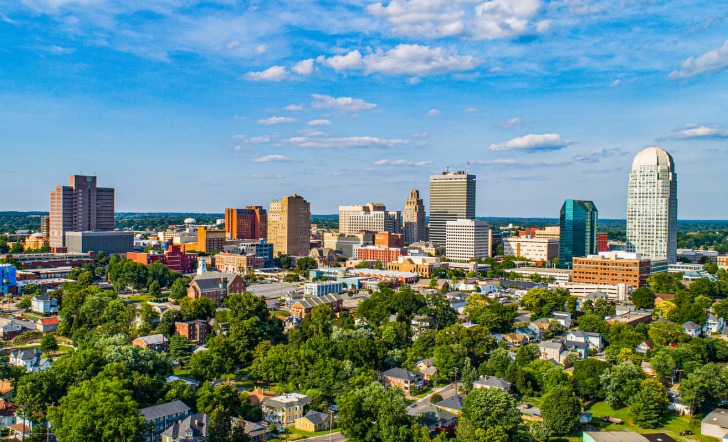
Contents
- Pros of Living in Winston-Salem
- Cons of Living in Winston-Salem
- Pros and Cons of Living in Winston-Salem, North Carolina – Summary Table
- Winston-Salem Safety Overview
- Frequently Asked Questions
- How did Winton-Salem come about?
- What was Winston-Salem's relationship to the tobacco industry?
- What is the unemployment picture in Winston-Salem?
- Who are the major employers in Winston-Salem?
- Is Winston-Salem a growing city?
- What was Winston-Salem's major contribution to the arts?
- Why is the city called Camel City?
Pros of Living in Winston-Salem
1. Quality of Life
The weather is good most of the time, the economy is strong, and there are lots of interesting things to do in and around Winston-Salem.
U.S. News and World Report ranked the town 41st among the best small cities in America to life, citing its small-town charm and steady growth.
Winston-Salem has not had big spurts of growth, which has made it more stable over the years.
There is a suburban feel along with the small-town charm, and it still has all the amenities you could want.
2. Southern Hospitality
The idea of southern hospitality came from the Carolinas, and Winston-Salem embodies that spirit.
Many people have been here for several generations, so they are deep into the positive aspects of Southern culture.
At the same time, they are open to new people and generally friendly.
People help each other out and are neighborly.
It won’t take much time to meet new people and make new friends when you move to this city.
3. Cost of Living
There are places in North Carolina that are less expensive, but the cost of living in Winston-Salem remains low.
It is about one percent above the state average, but five percent below the national average.
Utilities are 10 percent below the national average.
Food and entertainment are also on the lower end of pricey, so your money will go further here than in other places.
Wages are average, to above average, making the cost of living even more appealing here.
4. Housing
One of the best things about moving to Winston-Salem is the cost of housing.
Housing is 20 percent below the national average, an even below the state average.
The median price home in this city is $279,000, while the national average is over $400,000.
Rent is also relatively inexpensive with one or two-bedroom apartments averaging $500 a month or lower.
5. Outdoor Activities
There are a lot of lakes and wilderness areas around Winston-Salem to give you plenty of options for outdoor activities.
Trails in the city and in the countryside offer lots of adventure as well.
The mountains are less than two hours away, and the beaches are about 3–4 hours in the other direction.
Winston-Salem is not far from many attractions around the state.
There are activities to enjoy outside throughout the year.
6. Diversity
Winston-Salem has a wide variety of people and different cultures represented.
The population is 45 percent white, 34 percent black, and 16 percent Hispanic.
In addition to racial diversity, many cultures are active in the community.
There are not many Native Americans left in the area, but there are still traces of some of the culture that can be seen.
You can also see the diversity with all the different kinds of cuisine available.
7. Weather
There are four distinct seasons, and none of them are very extreme.
Summers are warm, but not overbearingly so.
Winters can get cold, but there is not much snow or ice.
Spring and Fall are the best of times with cool temperatures.
Spring brings fresh blooms and green grass, welcome after winter.
Fall brings all the fall colors of trees.
There’s something to enjoy in each of the four seasons.
It’s far enough inland to not be bothered by hurricanes, and tornadoes are very rare.
8. Education
Wake Forest University is in Winston-Salem, and there are six more private colleges to choose from.
Elementary and high schools get high marks on state tests, and they have a solid reputation.
Public schools in Winston-Salem are consistently rated among the best in the state.
With all the colleges there are also plenty of opportunities for adults with continuing education.
Cons of Living in Winston-Salem
1. Weather
The weather is both good and bad in Winston-Salem.
It is good in that it is not often harsh, but when it is harsh, it is very harsh.
There is a lot of rain during the summer.
Afternoon showers come up fast and don’t last long, but they make you wet, and the air gets very humid the rest of the day.
There are ice storms at times that can be treacherous.
The area gets two or three inches of rainfall each month, and more in the summer months.
Snow is rare, but when it does happen the city cannot handle it.
2. Transportation
You will likely need a car if you want to go anywhere in Winston-Salem.
If you have a car, everything in Winston-Salem can be reached in 10 minutes, but it would take a lot longer if you were walking.
There is not much public transportation, and it does not cover a large area.
This is an area that needs improvement and the city has been working on getting better, but for now, it is a problem.
3. Pollen
Lots of vegetation and rain means lots of pollen in the air.
If you are an allergy sufferer, you will have a lot of suffering in this area.
If you have mild symptoms and move here, you may suddenly have major symptoms.
Springtime allergies are the worst, but there are fall allergies as well.
Cars, driveways, and basically anything outside, can get a yellow coating of pollen on heavy days.
4. Higher Taxes
Income tax is taxed at a flat rate of 4.5 percent, regardless of your income, which is higher than most states.
North Carolina is not the most taxed state, but that leaves cities with the burden of paying for their own services.
This means higher local taxes. Sales tax is seven percent, which is also higher than surrounding areas.
Property taxes are also relatively high compared to surrounding areas.
5. High Poverty
The poverty rate in Winston-Salem is about 18 percent, which is far above the national rate of 11 percent.
This means that almost one in five people live in poverty.
There are some nice areas, but there are also poor neighborhoods that have run-down buildings and what looks like poor housing.
Winston-Salem also has one of the highest child poverty rates in the nation, even higher than places like Chicago.
6. High Crime Rate
For all it has going for it, Winston-Salem has a surprisingly high crime rate.
One source ranked it as having the third-highest crime rate in the state, but it is not in the top 10 on most lists.
According to Neighborhood Scout, there are 11.49 violent crimes per 1000 people and the national average is 4.0, which is also the state average.
Property crime is double the national average.
Auto theft is a major problem and almost triple the national average.
7. Limited Nightlife
Winston-Salem is a small town at heart, even though it has a lot of people.
There are not a lot of large music venues and not a lot of nightclubs either.
There are plenty of places to go and have fun, but the city closes down earlier than many other cities do.
If you are from somewhere like New York or Los Angeles, you might find it not as exciting.
It is a college town, however, and that means there is some partying at various places.
8. Not Walker or Biker-Friendly
Winston-Salem has two nice downtown areas that are great for walking around, but not so much the rest of the city.
It was designed and built for cars.
It is hard to get around town just by walking, or with a bicycle because of the way the streets are sidewalks are laid out.
There are few bicycle lanes, making cycling around town treacherous.
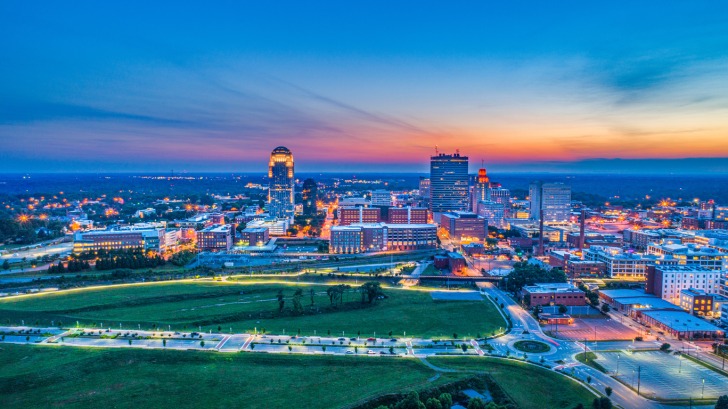
Pros and Cons of Living in Winston-Salem, North Carolina – Summary Table
| Pros of Living in Winston-Salem | Cons of Living in Winston-Salem |
|---|---|
| 1. Quality of Life | 1. Weather |
| 2. Southern Hospitality | 2. Transportation |
| 3. Cost of Living | 3. Pollen |
| 4. Housing | 4. Higher Taxes |
| 5. Outdoor Activities | 5. High Poverty |
| 6. Diversity | 6. High Crime Rate |
| 7. Weather | 7. Limited Nightlife |
| 8. Education | 8. Not Walker or Biker-Friendly |
Winston-Salem Safety Overview
READ THE FULL REPORT: Winston-Salem Safety Review
Safety Index:
- OVERALL RISK: MEDIUM
- TRANSPORT & TAXIS RISK: LOW
- PICKPOCKETS RISK: LOW
- NATURAL DISASTERS RISK: LOW
- MUGGING RISK: LOW
- TERRORISM RISK: LOW
- SCAMS RISK: LOW
- WOMEN TRAVELERS RISK: MEDIUM
Frequently Asked Questions
How did Winton-Salem come about?
The town of Salem was started by Moravian Colonists in 1766.
A spot of land was sold in 1849 to create a county courthouse when the county was organized, and that grew into the town of Winston, named after a Revolutionary War hero.
They merged and became Winston-Salem in 1913.
What was Winston-Salem's relationship to the tobacco industry?
The RJ Reynolds company, one of the world’s largest tobacco companies, was headquartered in Winston-Salem.
Winston was a major cigarette label, but it was named after the city, not the other way around.
The Reynolds company was the economic engine that ran the city for more than a century.
It employed thousands and contributed millions of dollars to the city.
What is the unemployment picture in Winston-Salem?
The current unemployment rate is 3.9 percent.
It was 4.8 last year, and the long-term average is just over five percent.
The county has an even higher rate at 6.1 percent.
North Carolina’s latest unemployment rate was 3.4 percent.
Who are the major employers in Winston-Salem?
Two healthcare institutions are the largest employer, with nearly 30,000 workers.
Public schools are next with 5,500 employees.
Reynolds American Tobacco company is the fifth-largest employer with 2500 employees.
Government, manufacturing, finance, and education are the major employers in the city.
Is Winston-Salem a growing city?
It has had spurts of growth, over the past 100 years it has grown from 50,000 to 250,000.
Since 1990 it has grown by just over 100,000 people.
It has had many decades of 20-25 percent growth.
The decade ending in 2020 showed a growth of nine percent.
What was Winston-Salem's major contribution to the arts?
The city created the first arts council in the United States in 1949.
It had many art schools and lots of art galleries, and that led to the creation of the first council.
It is referred to as the city of arts and innovation, for that reason.
It has long had a reputation for being a town of artists.
Why is the city called Camel City?
The name Camel City refers to the cigarette brand called Camel, which was started there in 1875.
That was a major brand in the United States for many years.
Winston later emerged as one of the nation’s largest brands and also had its start with the Reynolds Tobacco company there.
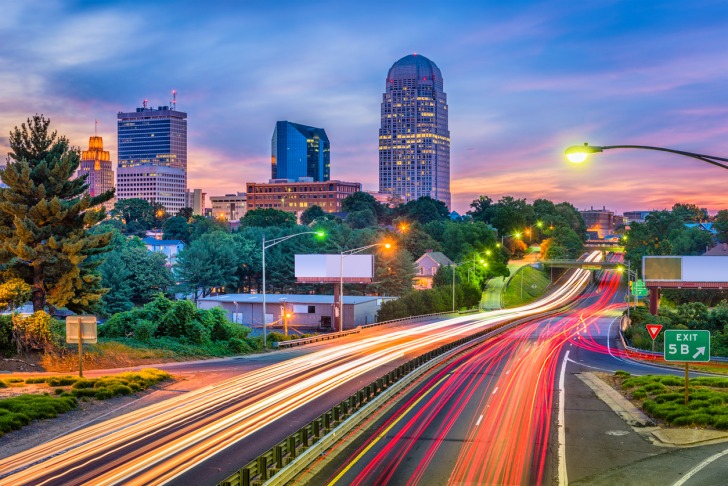
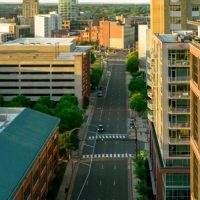
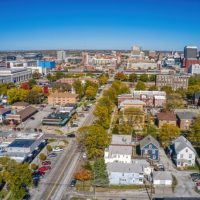

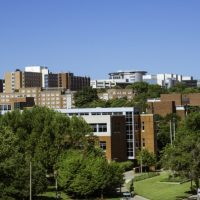
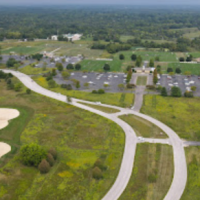
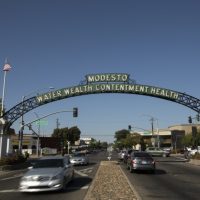





I believe Winston-Salem has a lot to offer with its quality of life, Southern hospitality, low cost of living and housing prices compared to other cities in the US.